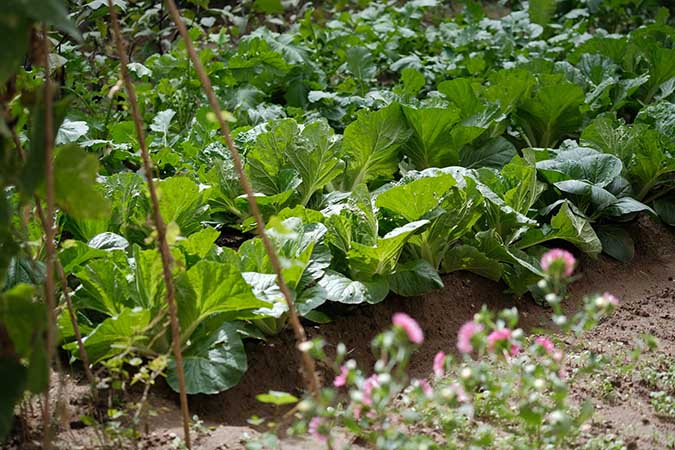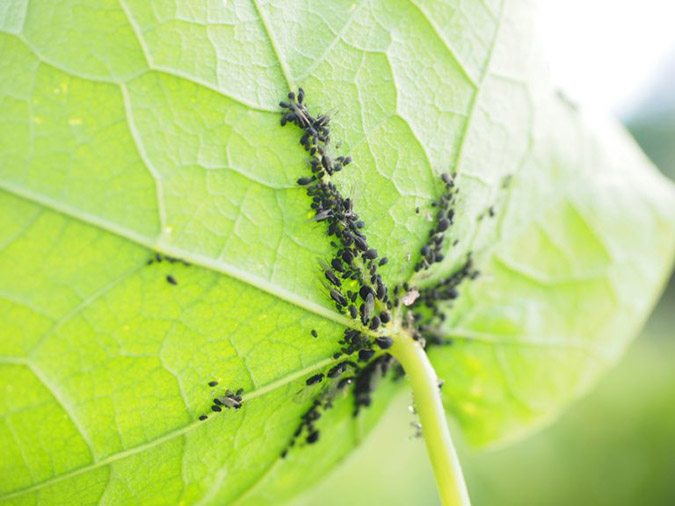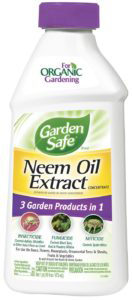Safe and effective, neem oil is a favorite treatment for pests and disease in the organic garden. Here’s how to use neem oil.
How to Use Neem Oil in Your Garden
Finding safe, nontoxic pesticides for the garden that actually work can be a challenge. We all want to protect the environment, our families, and our food, but most “organic” products available have limited effectiveness. Neem oil insecticide is everything a gardener could want.
What Is It?
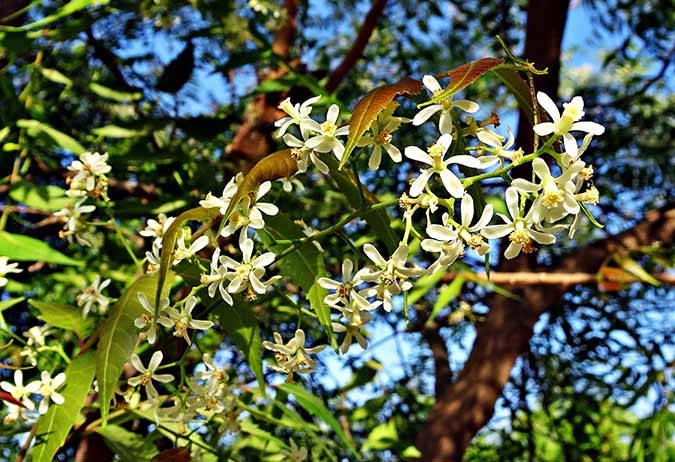
Image by Bishnu Sarangi from Pixabay
Neem oil comes from the tree Azadirachta indica, a South Asian and Indian plant common as an ornamental shade tree. It can be extracted from most parts of the tree, but the seeds hold the highest concentration of the effective insecticidal compound, Azadirachin.
There are numerous uses for this effective oil, but gardeners hail it for its antifungal and pesticide properties.
You May Also Enjoy:
“How to Attract Beneficial Insects and Repel Pests Through Garden Design”
Uses for neem oil include treating a number of garden ailments:
It repels or kills many harmful insects and mites, including aphids, whiteflies, snails, nematodes, mealybugs, cabbage worms, gnats, moths, cockroaches, flies, termites, mosquitoes, and scale. While it kills some bugs outright, it attacks the larvae of others, and it repels plant munchers with its bitter taste.
Fungus: Neem oil is effective in preventing fungal diseases such as black spot, anthracnose, rust, and mildew.
Disease: As if that wasn’t enough, it also battles viruses that can harm plants.
To use it as a preventative, apply garden-safe neem oil, diluted according to package instructions, every 7 to 14 days. If disease is already present, apply it on a 7-day schedule until disease pressure is eliminated. Then, continue spraying on a 14-day schedule to prevent the disease from recurring.
You May Also Enjoy:
“Colloidal Silver Kills Plant Fungus, Produces Larger and Healthier Crops”
To prevent rust leaf spot diseases, anthracnose, and scab, begin applications at the first sign of spring budding.
Finally, prevent powdery mildew by applying in midsummer or when disease is first detected. Continue applications until disease pressure no longer exists.
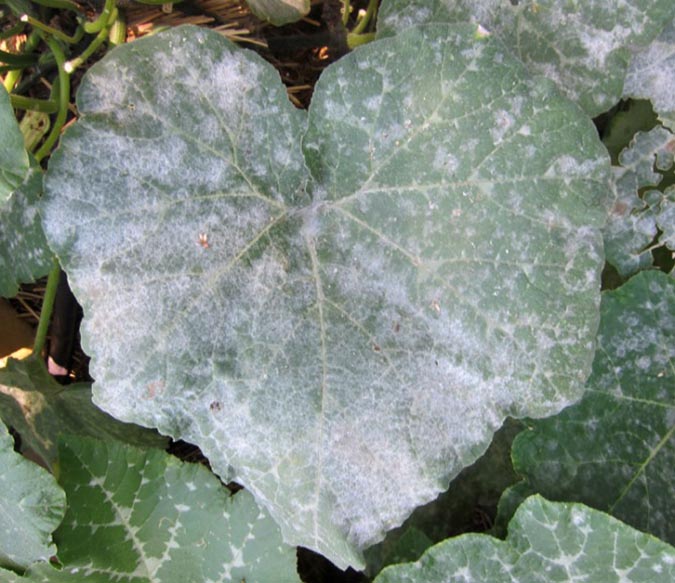
IMPORTANT: Always follow the directions for the type of neem oil you purchase.
How to Apply Neem Oil
As a Spray: Neem oil concentrate is usually mixed with water and sprayed on both sides of plant leaves. Because oil and water tend to separate, you’ll need to keep your solution well stirred. You can also mix it with insecticidal soap for a double whammy. Neem oil is bottled in different concentrations, so follow the instructions on the package to get the right proportions of oil to water.
Neem oil foliar spray has been shown to be most useful when applied to young plant growth. The oil has a half life of three to 22 days in soil but only 45 minutes to four days in water.
You May Also Enjoy:
“An Easy DIY Homemade Fungicide for Plants”
Some plants can be killed by neem oil, especially if it is applied heavily. Before spraying an entire plant, test a small area on the plant and wait 24 hours. Then, see if the leaf has any damage. If there is no damage, then the plant will not be harmed by the application.
Apply it only in indirect light or in the evening to keep the product from burning foliage and to allow the preparation to seep into the plant. Also, do not use the treatment in extreme temperatures, either too hot or too cold. Avoid application to plants that are stressed due to drought or overwatering.
You May Also Enjoy:
“10 Reasons You Need a Garden”
Soil Drench: This insecticide works as a systemic in many plants when applied as a soil drench. Once the product is in the plant’s vascular system, insects intake it during feeding. The compound causes insects to reduce or cease feeding, can prevent larvae from maturing, and reduces or interrupts mating behavior. In some cases, the oil coats the breathing holes of insects and kills them.
Advantages of Neem Oil
Neem oil is a popular choice in organic gardens because it is:
- Nontoxic: As long as it isn’t sprayed directly on them, neem oil is nontoxic to beneficial garden insects such as predatory wasps, honeybees, earthworms, ants, spiders, ladybugs, and adult butterflies. It is considered nontoxic to humans, birds, and other animals, as well (see below), and can be used on fruits, vegetables, and flowering plants.
- Organic: It is plant-based and easily available from organically grown neem trees.
- Biodegradable: It breaks down quickly and leaves no lasting residue.
Other Uses
If you’re concerned about the safety of this pesticide compared to other products in your garden, consider that it is often used as an ingredient in:
- Cosmetics
- Shampoos (including pet shampoos for flea/tick control)
- Natural insect repellents
- Alternative medical remedies for antiseptic, antiviral, antifungal, and anti-inflammatory uses
Is It Safe?

Image by Jörg Vieli from Pixabay
Neem oil is nearly nontoxic to birds, fish, bees and wildlife, and studies have shown no cancer or other disease-causing results from its use. This makes it very safe to use if applied properly.
The only health cautions for neem oil relate to actual consumption of the oil, and garden use does not appear to pose any known health hazards. As with any chemical—organic or synthetic—use it only in moderation when needed, and wash all veggies and plants thoroughly before eating.
What Do You Think?
Tell me, have you ever used neem oil? If so, how did it work for you?
Additional Resources
Material Fact Sheets: Neem (Cornell University)
Azadirachta indica: One Tree’s Arsenal Against Pests (Colorado State)
Neem Oil General Fact Sheet (National Pesticide Information Sheet)
Neem Based Insecticides (University of Connecticut)
___________________
The Grow Network is a participant in the Amazon Services LLC Associates Program, an affiliate program designed to provide a means for our team to earn fees for recommending our favorite products! We may earn a small commission, at no additional cost to you, should you purchase an item after clicking one of our links. Thanks for supporting TGN!
